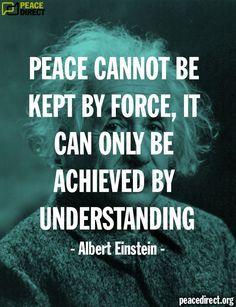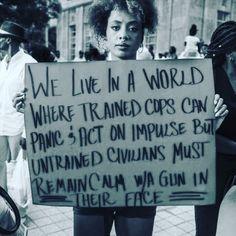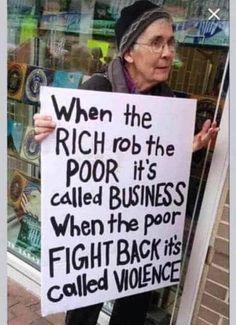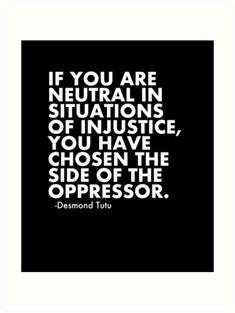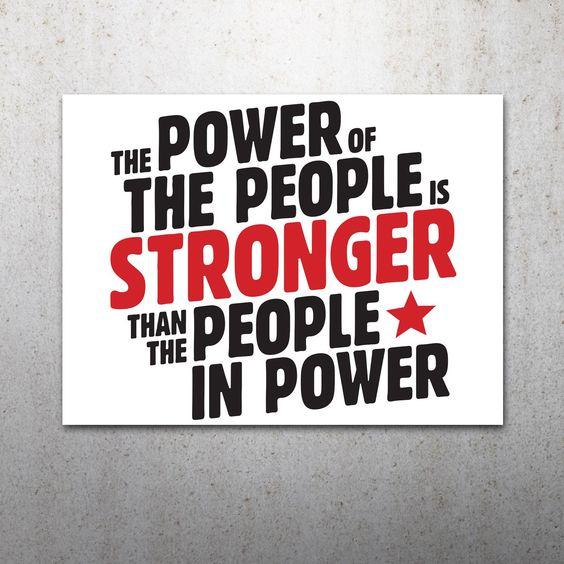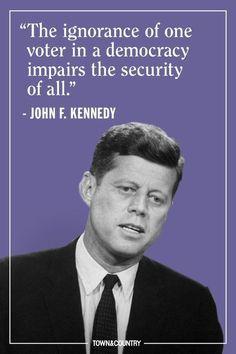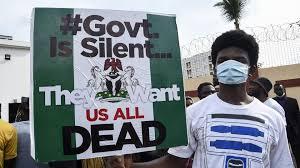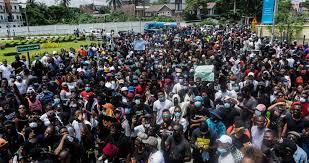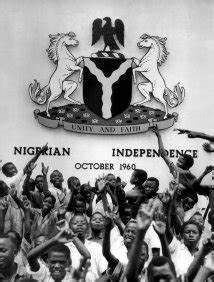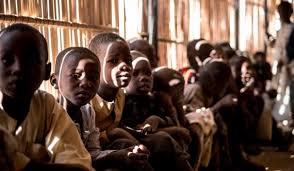Blog
The Essence of Peace
- By solomon2day
- On 22/10/2020
- Comments (0)
- In Pictures
A Section of the Media Beautify Govt's Failures-Prof. Olagoke
- By solomon2day
- On 15/10/2020
- Comments (0)
- In The People Talk
 The Print, Television and other branches of the mass media ought to at all times uphold the fundamental objectives of the real purpose of governance in impartial and unbiased ways.
The Print, Television and other branches of the mass media ought to at all times uphold the fundamental objectives of the real purpose of governance in impartial and unbiased ways.
Sadly, a number of organizations have failed to uphold the responsibility and accountability of the Government to the people for pecuniary and related reasons. In this interview with Federationews2day, the Founder, Spiritual Head, and Grand Imam of Shfaudeen-in-Islam Worldwide, Prof. Sabitu Olagoke opines that a section of the media in Nigeria beautify rather than highlighting the Government's shortcomings.
Excerpts:
Some media organizations have overtime failed to uphold the responsibility and accountability of the Government to the people. Why is this so?
The golden profession of the pen and other arms of the mass media are powerful communication tools to enliven the primary roles of enhancing education information and entertainment aspects of human activities for the purpose of peaceful co-existence and peoples' wellness and development.
This is why there is a regulatory control board for the proper management of the practice of the profession to avoid misleading the people and the promotion of disaffection among the people of mankind.
Without this profession, the whole world would have been in 'darkness', where waywardness and frivolities without a check would have dominated the scene to the displeasure and disadvantage of the weak and the just. In the case of Nigeria, we started well with the print and electronic media. Considering the emerging political scenario, partisanship has dominated the mass media, with reports having slants via tribal sentiments and political party biases.
This became more pronounced when privately owned mass media became prominent.
At a particular point in time, Nigeria relied upon foreign news than the local ones.
The local media have challenges such as the doctoring need either by government or the proprietors of various mass media otherwise employees would lose their jobs.
The role of the mass media is supposed to go beyond that of a watchdog that can only bark without biting.
However, Nigeria is yet to benefit from their competitive nature for any form of improvement need.
For the mass media to be effective, it needs to dwell on issues and objectivity based on facts and figures for their solidarity to check the opposition's overzealousness and critically evaluate the government's activities.
The performance rating and the need to restructure through management ethics need to be used as a tool by the mass media in order that their findings as x-rayed, would sensitize the society into taking decisive action on correcting aberrations in governance for all indicators of development to be improved.
Activities of the media are expected to x-ray the contributions of every individual in the National Assembly while periodical checks through a good performance rating of the executive members as well as the appointees of government into various positions of power.
Publications regarding the truth about the suitability of people in Ministerial portfolios ought to let the public know the people who are responsible for the various fraud and corruption in the land. This approach of the media would assist the government to carry out a periodical reshuffle of the cabinet for the purpose of achieving better performances in other people for the nation.
It is very unfortunate that Nigeria has witnessed cases of erstwhile good union leaders who were found wanting in governance affairs when challenged with management administration issues as they involve transparency and accountability. Also, erstwhile media practitioners of note have usually been found wanting, when given the opportunity to serve the government. One can now understand why the mass media may usually beautify government activities rather than exposing its failures.
However, for the nation to grow and develop, the mass media must be firm through organizational and professional ethics orientation as well as strong editorials and commentaries that must be respected based on objectivity that would not attract insinuations from members of the public that the outbursts were sponsored by the enemies of the government.
Society relies solely on the strength of the mass media in the charging government to be responsive and responsible through the due process of transparency and accountability.
The People and Their Leaders
- By solomon2day
- On 15/10/2020
- Comments (0)
- In Pictures
Nigerians Protest Police Extra Judicial Killings
- By solomon2day
- On 13/10/2020
- Comments (0)
- In Pictures
Nigerians have continued to protest against police extra judicial kllings, violent crimes, hunger, poverty, armed robbery, cultism, ritual killings, kidnappings, the activities of ''Yahoo Yahoo'' Boys(fraudsters), deceit by political office holders among others. Will Government respond convincingly to the protests of Nigerians ? Nobody knows.
Teachers Day-Put God First in all you Do-Pastor Akande
- By solomon2day
- On 05/10/2020
- Comments (0)
- In News
Nigeria's Independence in 1960
- By solomon2day
- On 28/09/2020
- Comments (0)
- In Solomon's Column
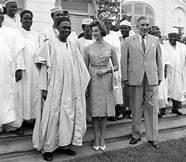 The Federation of Nigeria came into being in 1954 and in the same year, the Federal Government of Nigeria was introduced, this was a year after, Chief Anthony Enahoro moved a motion for independence in 1953.
The Federation of Nigeria came into being in 1954 and in the same year, the Federal Government of Nigeria was introduced, this was a year after, Chief Anthony Enahoro moved a motion for independence in 1953.
The Nigerian leaders then, had to travel to Great Britain for a conference, which deliberated on matters pertaining to Independence, in 1957, on their return, self-Government, commenced in the Eastern and Western regions.
The following year, 1958, a second conference came up in Great Britain, which laid the foundation for independence, while federal elections were conducted in December 1959 and the late Sir Abubabakar Tafawa Balewa emerged the Prime Minister of the Federation of Nigeria.
The Northern region of Nigeria also became self-governing in the same year.
Nigeria became an independent nation on 1st October, 1960, after the joint houses of Legislature unanimously passed the motion for independence and Sir James Robertson emerged as the first Governor-General of independent Nigeria. On November 16, 1960, Dr. Nanmdi Azizkiwe was appointed the first Nigerian Governor General of the Federation of Nigeria.
Before this time, on 1st October, 1960, the Queen of England was represented by Prince Alexandra at the independent day celebrations.
Princess Alexandra unfolded the Nigerian flag of Green, White and Green which replaced the Union Jack of Great Britain.
Between 1st October, 1960 and 1st October, 1963, Nigeria's allegiance was to the Queen of England. The Governor General represented the Queen in Nigeria.
On October 1, 1963, Nigeria became a Republic and as a result no longer had constitutional connection with Great Britain. The Supreme Court in Nigeria now became the highest court to which litigation of all sorts were channeled to.
Today, the loans and bonds by Government at all levels, which run into Trillions of Naira, perhaps, has compromised the sovereignty of the nation.
National Interest and Sectional Aspirations
- By solomon2day
- On 24/09/2020
- Comments (0)
- In Solomon's Column
The proponents of state police argue that it would ensure that the states maintain law and order, while at the same time making possible justice and equity.
However, the proponents are silent over the poor handling of various security related issues in several states of the federation, while looking the other way when it comes to the activities of self determination groups.
Of worry, is the heavy presence of strangers in most communities of the federation, these set of people do not have visible means of livelihood. Those in charge are aware of the unimpeded reign of crime, criminality and impunity in communities such as Moulsi, Solanke, Olorunsog, Molete, Oshodi, Scout camp, Aluko/Barracks in Felele, Ibadan, Oyo state among others.
Indeed, scheming and evil machinations of political office holders, who have the people's mandate has brought about the inability to secure lives and property to put an end to violent crimes across the six geo-political zones of the country.
Sadly, some state Governors have continuously manipulated the centralized policing system to their advantage.
Intimidation and harassment of political opponents and citizens who hold contrary views are common place in most states.
With reference to the above mentioned and happenings across the country, it is very dangerous to establish state police during this period of insecurity, economic hardships and agitations by groups for self determination.
The clamor for state police revolves, perhaps, on self interests and sectional aspirations, going by events in a number of states. Of worry, is the docility of political office holders and the people's representatives at all levels in the face of rising crime and criminality everywhere.
Indeed, most of these crimes are committed with the aid of motorcycles distributed by politically exposed persons as empowerment for the youth.
Increase in the Number of Illiterates a Threat-Prof. Olagoke
- By solomon2day
- On 24/09/2020
- Comments (0)
- In The People Talk
 Illiteracy is a major impediment to development in Nigeria. Sadly, over the years, the percentage of illiterates in the country has been on a steady increase due to the strange attitude of the government towards education.
Illiteracy is a major impediment to development in Nigeria. Sadly, over the years, the percentage of illiterates in the country has been on a steady increase due to the strange attitude of the government towards education.Good Intentions and Governance
- By solomon2day
- On 17/09/2020
- Comments (0)
- In Solomon's Column
Corruption, forgery and other fraudulent acts have become ways of life among the old and young alike in Nigeria today.
Even though there constitutional provisions to check the criminal acts, such provisions are very weak to make any noticeable impact, as events in the country suggest.
Sadly, the establishments saddled with the responsibilities of addressing the criminal acts which received adequate operational inputs and official backing have been successful in carrying out their assignments teleguided and with slants.
Of worry, is the large number of political appointees and elected office holders certificates' which have no verified evidence of attendance and completion of prescribed courses of study justifying the award of same.
Interestingly, presently, merit is perhaps, not one of the factors determining the employments and appointments into the deteriorated system in Nigeria.
The extent to which the unified structure of government bank accounts has been able to plug leakage and eradicate corruption is known only to those in government.
Sadly, reported incidents of corruption are on the increase, while the fight against corruption seem to have been toned down.
The controversial actions of those presently in the saddle of governance has, without doubt negatively affected their good intentions, which seem to now be in the realm of wishful thinking, considering the overbearing nature of self-centered interests in the land.
Economic Realities-Nigerians should Trust in God-Pastor Ajayi
- By solomon2day
- On 10/09/2020
- Comments (0)
- In News
Nigerians have been called upon to trust and put their hopes in God for the solution to people's unfriendly policies of the present administration in the country.
This call was made by Pastor Opeyemi Ajayi in a chat with Federationews2day.
''Nigerians should put their trust in God for the solution to the increase in electricity tariffs and the pump price of Premium Motor Spirit(PMS). Nigerians should hope in God. The increase is a bad omen for Nigeria. Everybody should look up to God for divine intervention in the present precarious situation. The government should ease the heavy burden it has placed on the people. Cost of living is now extraordinarily high'', Pastor Ajayi noted.




